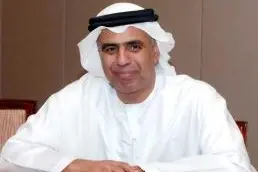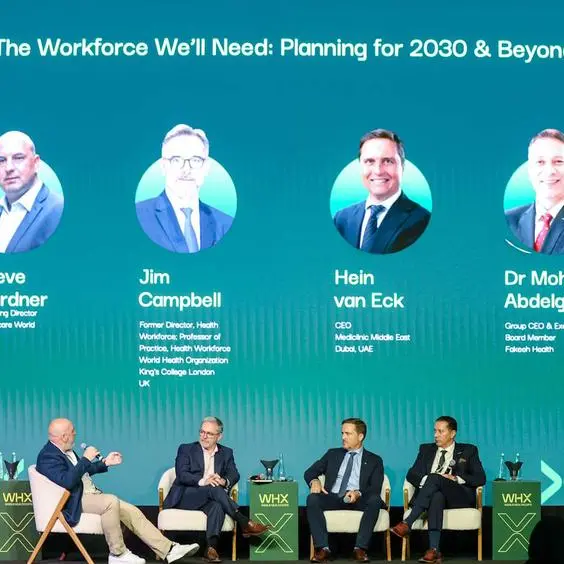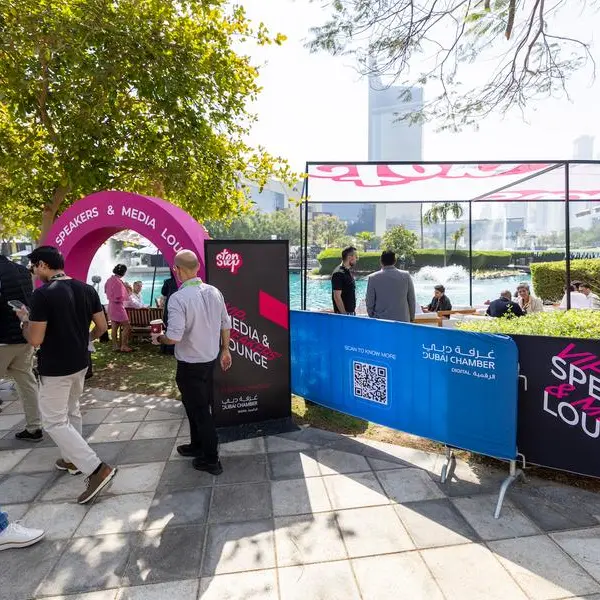PHOTO
Washington, 19 April 2015
A UAE delegation participated in the semi-annual International Monetary Fund and World Bank meetings, which took place on 17-19 April in Washington. The UAE delegation headed by HE Obaid Humaid Al Tayer, Minister of State for Financial Affairs, attended the International Monetary and Financial Committee and the ministerial meeting with the President of the World Bank Group.
International Monetary and Financial Committee (IMFC) meeting
HE Obaid Humaid Al Tayer headed the Arab Group at the semi-annual International Monetary Fund and World Bank meetings, which took place on 17-18 April. The meeting covered 10 elements on global economic growth including policies to promote balanced and sustainable growth, fiscal policies, monetary policies, financial sector policies, structural reforms, IMF loans and surveillance, frameworks and early warning systems as well as discussions on ways to face global challenges by promoting growth and crisis management.
In his speech on behalf of the Arab group at the International Monetary Fund, HE Obaid Humaid Al-Tayer pointed that the global recovery is picking up in most large economies, but it remains moderate and uneven across major economies and regions. HE said: "The Fund's outlook for advanced economies (AE) is improving while growth in emerging market and developing economies (EMDCs) is downgraded compared to others. The Fund's outlook is clouded by a number of forces, including investment and below target inflation in AE, rising market volatility, and some lingering crisis legacies."
HE referred to the decline in oil prices and its positive impact on global growth, in terms of reducing inflation, helping to create fiscal space, and improving the balance of payments of oil importing countries. However, a prolonged period of low growth, or disinflation, underscores the need for policy actions to support productivity and aggregate supply.
In his speech, HE also discussed the number of risks that emerging market economies (EMEs) face, which include higher interest rates, a stronger dollar, and more volatile capital markets. Thus, HE emphasised on significance of achieving asynchronous normalisation of monetary policies in AE to be carefully managed in order to limit market volatility.
Through his speech, HE highlighted the Arab group's appreciation towards the key messages of the Managing Director's Global Policy Agenda of the IMF, which gives prominence to actions that support durable growth by improving the effectiveness of demand stimulus, implementing structural reforms, and ensuring financial stability. In addition, HE confirmed the Arab group's support to the continuation of monetary accommodation by the ECB and in Japan, while the authorities remain vigilant to the build-up of financial risks and deploy macro prudential tools, as needed.
Speaking of the Arab group's countries, HE pointed that the Member States concur with the assessment of a pick-up in overall growth during the current year. The GCC countries continue to exhibit robust growth in the nonoil sector, especially with these countries pursuing strategies to rebalance growth towards more productive public spending and to strengthen the non-oil fiscal balances to preserve the oil wealth for future generations.
As for oil importers within the Arab's group, HE Obaid Humaid Al-Tayer mentioned in his speech that the average growth is projected to rise in 2015 on the back of confidence gains, higher demand from trading partners, and structural reforms that are nurturing competitiveness and foreign direct investment.
Moreover, HE stated that Future Fund analysis and policy advice could provide deeper country-specific analysis of policy options that balance fiscal sustainability and job-creating growth.
HE also stressed on the Arab group's commitment to the Fund's support for Arab Countries in Transition (ACTs) and substantial donor support from the region within the quota reform in the IMF process, taking into consideration that dynamic emerging and developing countries' in favor should not come at the expense of other emerging markets and developing countries.
HE Obaid Humaid Al-Tayer concluded his speech with an emphasis on the importance of the Fund's continued contribution to the post-2015 development agenda. HE have asked the Fund to adopt a new policy to achieve staff diversity and intensify efforts to address the underrepresentation of Arab nationalities, particularly at the level of managers and high level professionals.
The Arab Group at the IMF includes UAE, Kuwait, Oman, Bahrain, Egypt, Qatar, Lebanon, Jordan, Iraq, Libya, Yemen, Syria, and the Maldives.
HE Obaid Humaid Al Tayer also participated in the Development Committee of the World Bank meeting, which discussed international development and ways to support it, in addition to the World Bank Group's plans to promote economic development and poverty eradication in developing countries.
The ministerial meeting with the President of the World Bank Group
After accepting the invitation from Dr. Jim Yong Kim, President of the World Bank Group, HE Obaid Humaid Al Tayer attended the ministerial meeting which took place on 17 April; in the presence of Ban Ki-moon, Secretary General of the United Nations along with Christine Lagarde, Managing Director of the International Monetary Fund. The meeting highlighted efforts to reduce harmful emissions and put in place policies to finance environmental protection projects for private and public sectors. Participants also discussed innovative methods for financing purposes and the World Bank and IMF views on carbon pricing and reducing energy subsidies to protect against climate change.
The Secretary General of the United Nations advised the ministers of finance to adopt financial policies to support the environment and reduce emissions. He also encouraged attendees to achieve the goal of saving USD 100 billion to fund environmental programmes and support the Green Climate Fund with USD 10 billion. The meeting also highlighted the United Nations Framework Convention on Climate Change that will be launched at the Paris Conference in December 2015. It will also highlight financing policies and domestic and foreign investment with the private sector, and achieving "zero" rate of emissions before 2100.
HE Obaid Humaid Al Tayer shed light on five key elements: introducing the UAE's commitment to adopt and implement sustainable development programmes and renewable energy projects, the UAE's rank as the world's largest donor country of official development assistance for two consecutive years 2013-2014 (1.17% of the national income and ouput). HE Al Tayer also emphasised the need for the World Bank Group to commit in supporting special projects related to education, health, infrastructure, and energy in order to ensure sustainable development, create job opportunities and aid in poverty eradication in Arab countries; as well as the importance of supporting organisations under the World Bank Group for small and medium projects. HE also highlighted the UAE's contributions to the World Bank's capital in 2010, which amounted to USD 135.9 million and indicated the UAE's approval to increase its contribution in 2015, by offering USD 220,882 million.
-Ends-
For more information:
Osama Dagamseh / Mira Assaf / Ghaleb Zeidan
Weber Shandwick
Phone: +971 55 744 3346 / +971 50 3123518 / +971 55 560 8957
Fax: + 971 2 449 4833
Email: odagamseh@webershandwick.com; massaf@webershandwick.com;
gzeidan@webershandwick.com;
© Press Release 2015



















